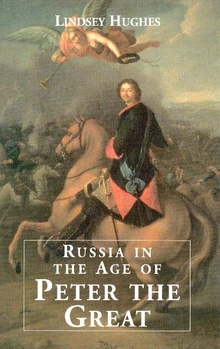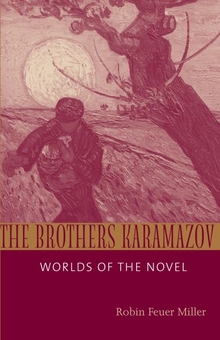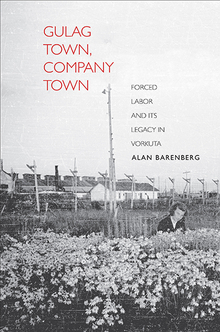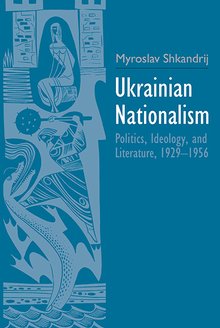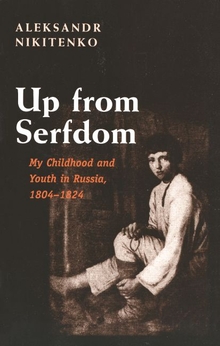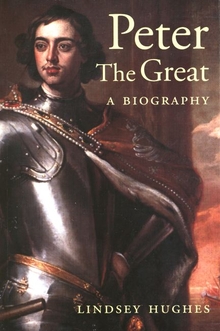Russia in the Age of Peter the Great
WARNING
You are viewing an older version of the Yalebooks website. Please visit out new website with more updated information and a better user experience: https://www.yalebooks.com
Lindsey Hughes
Out of Print
Drawing on previously unavailable sources, Lindsey Hughes provides an engrossing account of one of the most significant periods in Russian history. She proceeds thematically, discussing Russia’s foreign policy, the army and navy, economy, governing institutions, society, arts, education, and religion. She explores the experience of women and investigates the life of the court (including Peter’s “All-Drunken Assembly”), feasts, entertainments, and popular culture. Although the book is not a biography, Peter is a vivid presence throughout—a six-foot-seven-inch giant who enjoyed the company of dwarfs and ordinary people, adopted disguises and pseudonyms, married a peasant, and had a passion for cultural reform. Hughes recounts the events that shaped Peter’s youth, provides an intimate character sketch, and explores his complex family relations (including the tragic conflict with his eldest son Alexis, whom he condemned to death). Her account closes with a reconsideration of the Petrine legacy from Peter’s time to our own, as his name and image become harnessed to sell beer and cigarettes and the erection of his statue provokes recent controversy.
A selection of the History Book Club
“A scholarly and up-to-date work that should become the leading account of Petrine Russia.”—Isobel De Madariaga
“An admirably comprehensive volume. . . . [Hughes’s] exhaustive research in Russian sources, including archives in Russia in company with leading Russian specialists, is virtually faultless. The attention she pays to Peter’s opponents in Russia, to his court, both mock and real, to family and friends, to women—to people—can only be welcome. . . . Her detailed depiction of developments in education, the fine arts, book culture and language is also most welcome, and similarly distinguishes her book from its rivals. . . . Like a good teacher, she doesn’t really tell us what she thinks, but we emerge from her course invigorated, our noses well rubbed in the data, ready to argue with the historians, politicians and ideologues she quotes and eager to advance our own views.”—James Cracraft, New York Times Book Review
“Hughes’s thorough and scholarly account is certain to become the leading study of one of Russia’s most fascinating and significant periods. . . Here Hughes has produced the first truly comprehensive English-language account of Peter’s reign and both its immediate and long-term effects. . . . A remarkable work of scholarship that will open for English-speakers the full scope of Petrine Russia.”—Kirkus Reviews
“Scholars and students of Russian history will welcome this encyclopedic work.”—Publishers Weekly
“Hughes has given us a study worthy of its subject. . . . Her judgments, based on a wide familiarity with Russian sources, are scrupulously supported. . . . [This] book, much more ambitious than Robert Massie’s Peter the Great: His Life and His World, will become the standard reference for the reign. Hughes’s concluding remarks on Peter’s legacy confirm its still-living relevance to Russia.”—Library Journal
“Hughes . . . has masterfully captured the man and his era in a comprehensive study of both Peter and late-seventeenth century Russian society. . . . An expertly researched survey.”—Booklist
"[Hughes] has masterfully captured the man and his era in a comprehensive study of both Peter and late-seventeenth-century Russian society. . . . This is an expertly researched survey, presupposing a general knowledge of the historical period; but well-informed laymen as well as specialists will bind this work very valuable."—Booklist
“Hughes . . . has produced the most comprehensive study of Petrine Russia available in English.”—Richard Pipes, New Republic
"The most comprehensive study of Petrine Russia available in English."—Richard Pipes, New Republic
“This work is a vast and detailed corrective, which both adds some fresh historical material (the changing role of women, for instance) and includes some fine insights into Peter’s accelerated sense of time—he was the first but hardly the last Russian leader to realize that survival meant catching up with the West.”—Richard Lourie, Washington Post
"Very scholarly, this work is a vast and detailed corrective, which both adds some fresh historical material (the changing role of women, for instance) and includes some fine insights into Peter’s accelerated sense of time—he was the first but hardly the last Russian leader to realize that survival meant catching up with the West."—Richard Lourie, Washington Post Book World
“Hughes . . . has given us clear and comprehensive description of the activities of Peter I. . . . Hughes possesses the enviable ability to present a vast and varied array of facts in clear and readable fashion, which yields a vivid yet carefully balanced and documented picture of events and personalities. Hughes has given us the most reliable and readable store of information on a seminal period in the history of modern Russia. She has no competitor in English and hardly in Russian either. We are much in her debt.”—Marc Raeff
"[Hughes] has produced a scholarly account of the Petrine era which specialists will hold in high regard."—Orlando Figes, Sunday Telegraph
"A balanced and absorbing account of Peter and his times. . . . As a general survey . . . it could hardly be bettered. . . . It will surely remain the standard account in English of this crucial and fascinating period in Russian history."—Robin Buss, Independent on Sunday
"Thanks to Hughes’s beautifully written and profoundly scholarly book, for the first time the English-speaking reader is provided with a sufficiently full and just account of the events and institutions of Peter’s reign to allow such judgments to be attempted. . . . Her work will without doubt long remain the standard text and is supremely worthy to stand, as she aspires, alongside Isabel de Madariaga’s equally magnificent Russia in the the Age of Catherine the Great."—Nikolai Tolstoy, Literary Review
"The scope and source materials of this survey put it into a class by itself. . . . The value of this book is its tremendous wealth of information and its fascinating presentation of existing scholarship. Its clear prose makes it accessible to those without prior knowledge of Russian history."—Choice
"Hughes possesses the enviable ability to present a vast and varied array of facts in clear and readable fashion, which yields a vivid, yet carefully balanced and documented picture of events and personalities. . . . Hers is a comprehensive and fast-moving chronicle. . . . In Russia in the Age of Peter the Great, Hughes has given us the most reliable and readable store of information on a seminal period in the history of modern Russia."—Marc Raeff, Los Angeles Times Book Review
"Hughes has given us a clear and comprehensive description of the activities of Peter I that aimed at transforming ’traditional Muscovy’ into the ’empire of St. Petersburg.’. . . Hughes has us the most reliable and readable store of information on a seminal period in the history of modern Russia. She has no competitor in English and hardly in Russian either. We are much in her debt."—Marc Raeff, Los Angeles Times Book Review
“A comprehensive and fast-moving chronicle.”—Marc Raeff, Los Angeles Times Book Review
"A superbly comprehensive survey of the Petrine era. . . . Hughes writes in a crisp, factual, scholarly manner. . . . She has a fine eye for significant detail, as well as the grand themes. . . . The contemporary relevance of this splendid piece of history needs no underlining."—George Walden, The Daily Telegraph
"[Hughes] has produced such a comprehensive, scholarly and fluently written study of this horrific, complex man and his fascinating times that no one will need to revisit the subject for decades to come."—Andrew Roberts, Mail on Sunday
“Hughes has given us a study worthy of its subject. . . . Her judgments, based on a wide familiarity with Russian sources, are scrupulously supported. . . . [This] book, much more ambitious than Robert Massie’s Peter the Great: His Life and His World, will become the standard reference for the reign. Hughes’s concluding remarks on Peter’s legacy confirm its still-living relevance to Russia.”—Library Journal
"A fine, extensively researched study of Peter and his Russia, which students of the period should find invaluable."—Ian Cummins, Australians Review of Books
"This is an engaging, well-written synthesis of scholarship and one extremely rich in new insights."—Gregory L. Freeze, Slavic Review
"The book is an extremely rich one. It covers all major aspects of the Petrine reign, together with many matters usually omitted, especially in single-volume surveys, and all this information is presented with scholarly precision and with full knowledge of the context. . . . Already a leading figure in her field, Hughes will certainly gain in authority with the publication of this massive and remarkably comprehensive study."—Nicholas V. Riasonovsky, American Historical Review
“A wonderful and detailed account of Peter and his reign, essential for scholars, useful for students and even accessible for the general reading public. . . . This is also a serious scholarly work which covers virtually every aspect of Peter’s reign in a way that many shorter works have been unable to do.”—Lee Farrow, H-Net Reviews
“Lindsey Hughes’s book joins the classic works of S. M. Solov’ev, V. O. Kliuchevskii, and P.N. Miliukov on the reign of Peter the Great and will be one of the volumes that everyone interested in Russia in the 1682-1725 period will need to read.”—Richard Hellie, Annals of the American Academy of Political Science
“Hughes’s biography presents the most balanced and internally consistent assessment of Peter from his early years until his death. It is the only study to take seriously the foreign accounts of Peter’s Russia. . . . One fully expects this fine study to define the field for a generation, and to set the agenda for future research, as did the earlier and magisterial work of her teacher.”—Max J. Okenfuss, Historian
“[M]agesterial. . . .[Hughes] has successfully retrieved the visceral side of Petrine public life from the preserve of the potboilers and resituated it where it belongs, in the mainstream of scholarship.”—Gary Marker, Slavic and East European Journal
Publication Date: September 10, 1998
29 b/w illus.

